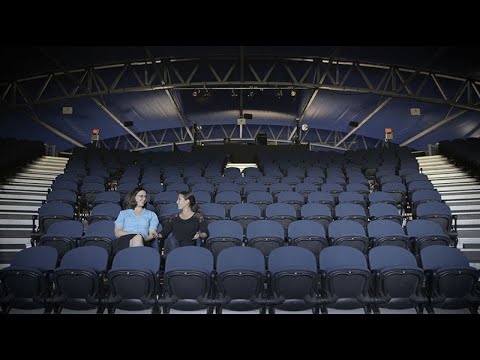Career Overview
Conference and event planners plan, organize and coordinate conferences, conventions, meetings, seminars, exhibitions, trade shows, festivals and other events.
People in this occupation:
- Are employed by tourism associations, trade and professional associations, convention and conference centres, governments, and by conference and event planning companies, or may be self-employed
- Often work in large convention or accommodation facilities such as hotels
- Work with many people, often under pressure
- Respond carefully in difficult circumstances
- Are detail-oriented, have excellent social skills and are able to multi-task and respond quickly to unexpected situations
This can be an exciting field to work in, as it provides variety in terms of events, activities and locations, as well as an opportunity to meet people from a wide range of backgrounds.
Job Titles
Duties
Conference and event planners perform some or all of the following duties:
- Meet with trade and professional associations and other groups to promote and discuss conference, convention and trade show services
- Meet with sponsors and organizing committees to plan the scope and concept of events, to establish and monitor budgets and to review administrative procedures and progress of events
- Coordinate services for events, such as accommodation and transportation for participants
- Ensure the conference centre or other facility can meet needs for catering, signage, displays, translation, special-needs requirements, audio-visual equipment, printing and security
- Plan entertainment and social gatherings for participants
- Organize registration of participants, prepare programs and promotional material, and publicize events
- Hire, train and supervise support staff required for events
- Ensure events run smoothly and trouble-shoot any problems that may arise
- Ensure compliance with required by-laws
- Negotiate contracts for services, approve suppliers' invoices, maintain financial records, review final billing submitted to clients for events, and prepare reports
Earnings
Earnings is income that workers receive in exchange for their labour. Depending on the type of employment, earnings can be in the form of wages (hourly), salaries (fixed monthly or annual) or self-employed earnings.
Work Environment
# Workers Employed
2,720% Employed Full Time
50%Planners may work from an office; however, much of the work is performed on-site at hotels, convention centres or other event locations. Planners may also visit suppliers of conference materials (such as audio-visual gear).
Weekend and evening work is common and planners often work long hours prior to and during events. Work in this field can be seasonal for festival planners, whose events tend to be concentrated in the summer months.
Planners are increasingly using event planning software, performing duties through tools such as webinars, virtual conferences and podcasts, and using the Internet to access information and must be able to adapt to new technologies that may be used in their day to day work.
Career Pathways
Recent graduates typically find work as event coordinator assistants, junior meeting planners in a hotel and catering assistants. Conference planners who have gained experience managing a wide range of activities are qualified for a range of administrative and managerial tasks as senior planners, team managers or directors of sales.
With experience, it is possible to move up to related positions in marketing or hospitality management or to progress to managing larger events.
Related Careers
Occupational Interests
It’s important to understand what kinds of occupations align with your interests.
For more about occupational interests visit Skills for the Future Workforce > Characteristics.
Here are the top occupational interest(s) for this career profile:
Education, Training and Skills
Planners usually need to complete a university degree or college diploma in marketing, sales, business, tourism or hospitality administration. Other training may include:
- Certification relating to the management of special events, meetings or conferences, such as a Certified Meeting Professional (CMP) designation
- Marketing, planning or tourism
Several years of experience in hospitality, tourism administration, public relations or in a comparable position at a conference centre or hotel are usually required and may substitute for formal education requirements (up to two years is preferred in some instances). Additional assets which may benefit individuals include:
- Strong customer service and computer skills
- Experience in computer-aided design drawings
Education programs in B.C.
The following program areas are related to this occupation:
- Hospitality/Tourism Management
- Public Relations
- Sports and Fitness Administration/Management

Skills
Every job calls for a certain set of skills. Knowing those skills is the first step in finding a good career fit.
Here, you will find the 10 most relevant workplace skills. Some are more important to achieving success in a certain career than others. These skills may come naturally to you or you may need to gain them through education, training and experience.
See the list of work-related skills below, ranked in order of importance for this career. Check out the list and see if this career matches your skills—take that first step!
Giving full attention to what other people are saying, taking time to understand the points being made, asking questions as appropriate, and not interrupting at inappropriate times.
Understanding written sentences and paragraphs in work-related documents.
Talking to others to share information effectively.
Adjusting actions in relation to others' actions.
Using logic and reasoning to identify the strengths and weaknesses of alternative solutions, conclusions or approaches to problems.
Actively looking for ways to help people.
Being aware of others’ reactions and understanding why they react as they do.
Managing one’s own time and the time of others.
Being able to solve novel, ill-defined problems in complex, real-world settings.
Considering the relative costs and benefits of potential actions to choose the most appropriate one.
Labour Market Statistics
Discover data, facts and information that have been gathered and analyzed. Learn about the characteristics of the economy and labour market in B.C.
Employment
Find out about employment types and trends by region and industry.
Employment
2,720Employment by Region







| Region | Employment | % Employment of this Occupation |
|---|---|---|
| Cariboo | 55 | 2.0% |
| Kootenay | 50 | 1.8% |
| Mainland/Southwest | 1,950 | 71.6% |
| North Coast and Nechako | 10 | 0.4% |
| Northeast | 0 | 0.0% |
| Thompson-Okanagan | 225 | 8.3% |
| Vancouver Island/Coast | 435 | 16.0% |
Labour Market Outlook
The B.C. Labour Market Outlook is a 10-year forecast of the expected supply and demand for labour in the province. It’s usually updated every year. The purpose is to provide British Columbians with the knowledge to make informed decisions on careers, skills training, education and hiring.
Forecasted Job Openings (2024-2034)
1,320Forecasted Job Openings
Forecasted Employment Growth Rate
Composition of Job Openings
Job Openings by Region (2024-2034)







| Region | Job Openings | Avg. Annual Employment Growth |
|---|---|---|
| Cariboo | 10 | -1.4% |
| Kootenay | 10 | 0.1% |
| Mainland/Southwest | 1,010 | 1.6% |
| North Coast and Nechako | Not available | Not available |
| Northeast | Not available | Not available |
| Thompson-Okanagan | 120 | 1.9% |
| Vancouver Island/Coast | 170 | 1.1% |
Industry Highlights
Learn about the opportunities in B.C.'s major industries, including employment trends, earning potential, locations of work and more.
Forecasted Job Openings by Industry
| Industry | Job Openings (2024-2034) |
|---|---|
| Repair, Personal and Non-Profit Services | 350 |
| Information, Culture and Recreation | 320 |
| Educational Services | 130 |
| Professional, Scientific and Technical Services | 130 |
| Public Administration | 90 |
Insights from Industry
The majority of job openings in this occupational group are expected to come from retirements.
British Columbia has become increasingly popular as a tourist destination, both domestically and internationally. This will improve demand for workers in this occupation, as the desirability to use sites within B.C. increases. New conference facilities (i.e. the Vancouver Convention Centre) are also increasing the capacity of the province to host large events. As well, the business services sector is also growing as more companies and organizations contract experts for specific tasks, such as meeting and conference planning.
Industry sources report that demand for workers in this occupation is linked to the general economy, and that increased demand may be in response to more positive economic conditions. As well, on a smaller scale, it is reported that new trends in the use of on-line meetings may affect smaller meetings and conferences by reducing the need for planners.
Competition for employment in this field will likely be strong due to the desirable nature of this work.
Resources
-
Canadian Tourism Commissionen-corporate.canada.travel
-
Events Industry Councilwww.eventscouncil.org
-
Go2HRwww.go2hr.ca
-
Tourism HR Canadacthrc.ca
-
Tourism Industry Association of Canadawww.tiac-aitc.ca









